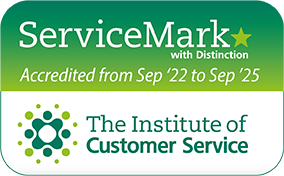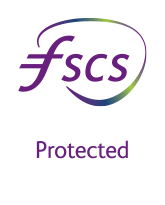Make your new home dream a reality by reading our top tips on how you can save for a deposit.
You need to be aware of the costs connected to a mortgage. The following costs relate to buying your home, switching your mortgage without moving home and the ongoing administration of your mortgage.
Legal fees
If you are buying your home, the fee paid to your solicitor covers all legal work involved in transferring the ownership of the property to you. This is called ‘conveyancing’. This fee will often be a percentage of the cost of the home being purchased.
A 'Local Search' is undertaken to check for plans for building and/or development of the land near to the property that may affect its value. A bankruptcy search is carried out on you to ensure you are not bankrupt and therefore unable by law to borrow. A separate fee is charged for each search. Land registry fees are paid in order to register you as the new owner of the property and to register our mortgage on the Land Registry’s Charges Register.
For remortgages, a fee is paid to your solicitor to act in removing the existing lender’s mortgage and adding our mortgage to the Charges Register. Your solicitor will also carry out a local search and bankruptcy search (as above).
Your solicitor’s fees are paid on completion of the mortgage and must be paid from your own funds (fees for searches are usually paid up front).
Stamp Duty Land Tax
You usually pay Stamp Duty Land Tax (SDLT) on increasing portions of the property price above £125,000 when you buy residential property, eg a house or flat.
There are different rules if you’re buying your first home and the purchase price is £500,000 or less. Visit the Gov.UK website for full details.
Agents fees
If you are selling a property you will usually employ an estate agent to help you sell it. The fees charged cover services such as advertising your home and negotiating with buyers. This fee is usually paid when the purchase money has been received by your solicitors. An estate agent may charge around 2% of the selling price and it is normally agreed before you appoint them. You could decide not to use an estate agent and sell privately which will be at a much lower cost but may be more difficult.
Mortgage application fee
Some lenders will charge a fee which is payable as part of the cost of the product.
Mortgage arrangement fee
Some lenders will charge a fee to arrange your mortgage for you. This is to cover the cost of the administration associated with assessing your application and setting up your mortgage account.
Valuation fee
A basic standard mortgage valuation is an inspection carried out by a valuer to make sure that the property is suitable security for the loan required. The amount of the fee is based on the purchase price or estimated value. The mortgage valuation is carried out for our purpose but we will give you a copy of the report. Some mortgage products may offer a free mortgage valuation but if you would like a more detailed report there will be a supplement to pay.
A Homebuyer’s Report is a more detailed alternative to a mortgage valuation that will give you a more comprehensive guide to the condition of your property. It is normally suitable for properties less than 100 years old.
A full building survey is a thorough and complete inspection of the property done to your specification. If you would like a full building survey, we will give you the names of some local surveyors who you can contact to give precise instructions and negotiate a price.
If you decide to commission a Homebuyer’s Report or full building survey, we will still need to have a mortgage valuation carried out for us. In most cases this can be done simultaneously with the more detailed report.
If your property is subject to a reinspection prior to release of the mortgage funds, a fee of £125 will be charged for this.
Higher lending charge
A higher lending charge is paid when a mortgage is more than a certain percentage of the purchase price/valuation of the property (whichever is the lower of the two), as specified by the lender. In our case, a higher lending charge is due where the loan is more than 75% of the purchase price/valuation. The fee is calculated on the portion of the mortgage loan above this percentage.
The higher lending charge is used to purchase insurance (indemnity) cover from an insurance company and is therefore sometimes called a ‘mortgage indemnity fee’. This cover allows us to lend a higher percentage of the property value by covering the increased risk of loss associated with this level of borrowing.
You can add the fee to the mortgage (depending on size of the mortgage and the value of the property) or it can be deducted from the loan amount on completion. Sometimes the cost of the fee is covered as part of the mortgage product.
If a mortgage is in arrears and is subsequently repossessed, the sale proceeds may not be enough to cover the outstanding mortgage debt plus all costs associated with the property sale. In these cases we would call upon the insurance policy to cover the loss. It is important to note that the insurance policy protects the lender, not the borrower. Once the monies have been paid out to the lender, the insurance provider can then recover the loss from the borrower (whose property has been repossessed) to recoup the funds.






